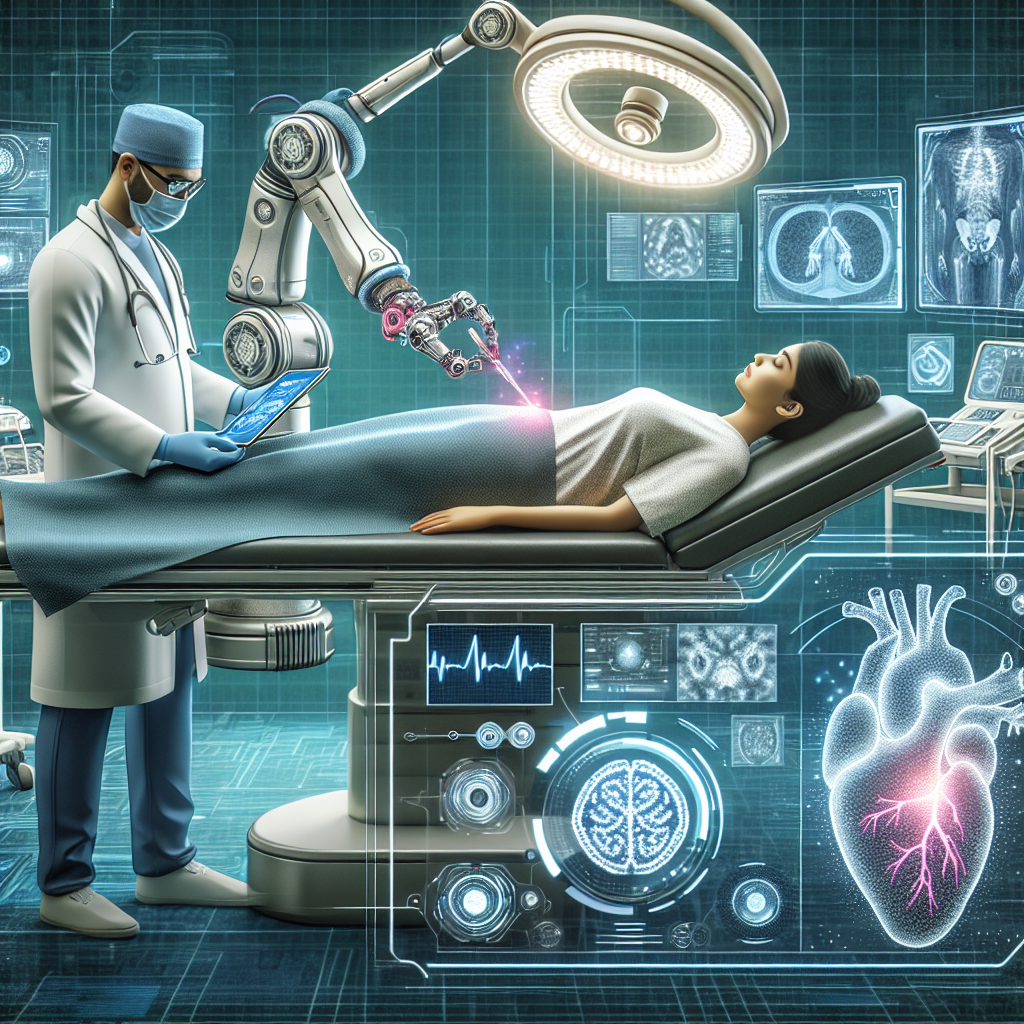AI Deployment in Healthcare: Enhancing Patient Care
Artificial intelligence (AI) is revolutionizing the healthcare industry by improving patient care, increasing efficiency, and reducing costs. AI technologies such as machine learning, natural language processing, and computer vision are being deployed in various healthcare settings to assist healthcare professionals in making more accurate diagnoses, predicting patient outcomes, and personalizing treatment plans. In this article, we will explore the benefits of AI deployment in healthcare and how it is enhancing patient care.
Benefits of AI Deployment in Healthcare
1. Improved Diagnosis and Treatment Planning: AI algorithms can analyze vast amounts of patient data, including medical records, lab results, and imaging studies, to assist healthcare providers in making more accurate diagnoses and treatment plans. AI can also help identify patterns and trends in patient data that may not be immediately apparent to human healthcare professionals.
2. Predictive Analytics: AI can predict patient outcomes based on historical data and identify patients who are at risk of developing certain conditions or complications. This allows healthcare providers to intervene early and provide preventive care to improve patient outcomes.
3. Personalized Medicine: AI can analyze genetic, clinical, and lifestyle data to create personalized treatment plans for individual patients. This precision medicine approach can lead to better treatment outcomes and reduced side effects.
4. Remote Monitoring: AI-powered devices can monitor patient health in real-time and alert healthcare providers to any deviations from normal parameters. This remote monitoring can help prevent hospital readmissions and improve patient outcomes.
5. Administrative Efficiency: AI can automate administrative tasks such as appointment scheduling, billing, and patient communication, freeing up healthcare professionals to focus on patient care. This increases efficiency and reduces costs for healthcare organizations.
6. Drug Discovery: AI can analyze large datasets to identify potential drug candidates and predict their efficacy and safety. This accelerates the drug discovery process and can lead to the development of new treatments for various diseases.
7. Robotics: AI-powered robots can assist healthcare professionals in surgery, rehabilitation, and patient care. These robots can perform repetitive tasks with precision and accuracy, reducing the risk of human error.
FAQs about AI Deployment in Healthcare
Q: Is AI deployment in healthcare safe for patients?
A: AI deployment in healthcare is safe for patients when implemented properly. Healthcare organizations must ensure that AI algorithms are validated, transparent, and compliant with privacy regulations to protect patient data and ensure patient safety.
Q: Will AI replace healthcare professionals?
A: AI is not meant to replace healthcare professionals but to assist them in providing better care to patients. Healthcare professionals will continue to play a critical role in patient care, while AI technologies will enhance their capabilities and improve efficiency.
Q: How can healthcare organizations ensure the ethical use of AI in patient care?
A: Healthcare organizations can ensure the ethical use of AI in patient care by establishing clear guidelines and protocols for AI deployment, prioritizing patient privacy and data security, and involving healthcare professionals in the decision-making process.
Q: What are the challenges of AI deployment in healthcare?
A: Some challenges of AI deployment in healthcare include data privacy concerns, regulatory barriers, lack of interoperability between AI systems and existing healthcare IT infrastructure, and resistance from healthcare professionals to adopt AI technologies.
Q: How can healthcare professionals benefit from AI deployment in patient care?
A: Healthcare professionals can benefit from AI deployment in patient care by accessing real-time patient data, receiving personalized treatment recommendations, improving diagnostic accuracy, and streamlining administrative tasks.
In conclusion, AI deployment in healthcare is transforming patient care by improving diagnosis and treatment planning, predicting patient outcomes, personalizing medicine, enhancing remote monitoring, increasing administrative efficiency, accelerating drug discovery, and assisting healthcare professionals in surgery and patient care. While there are challenges to overcome, the benefits of AI deployment in healthcare are clear, and it has the potential to revolutionize the way healthcare is delivered. By ensuring ethical use and proper implementation, AI technologies can enhance patient care and improve outcomes for patients around the world.

